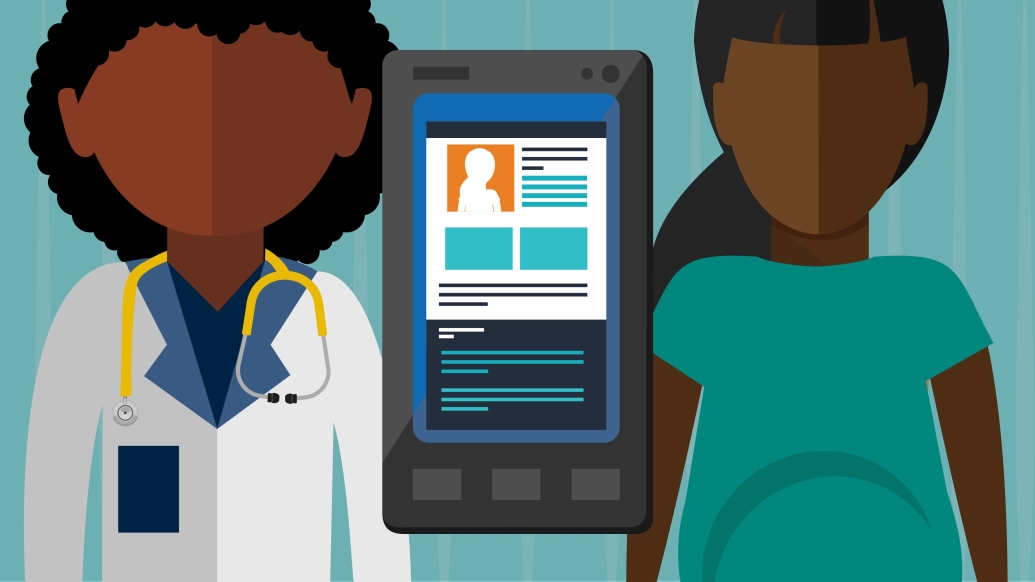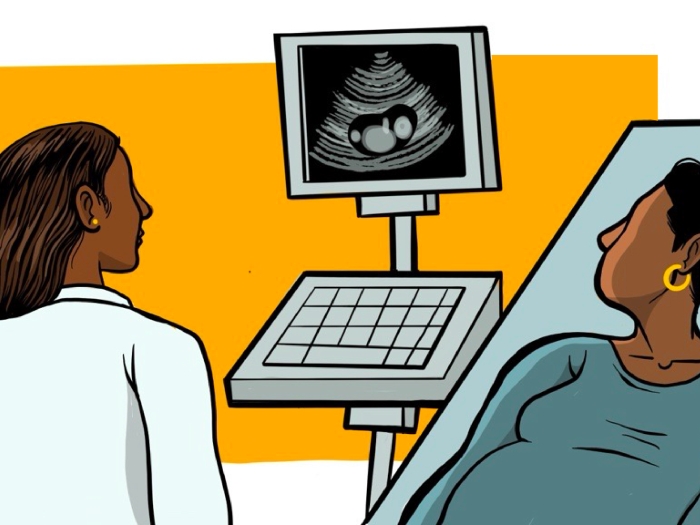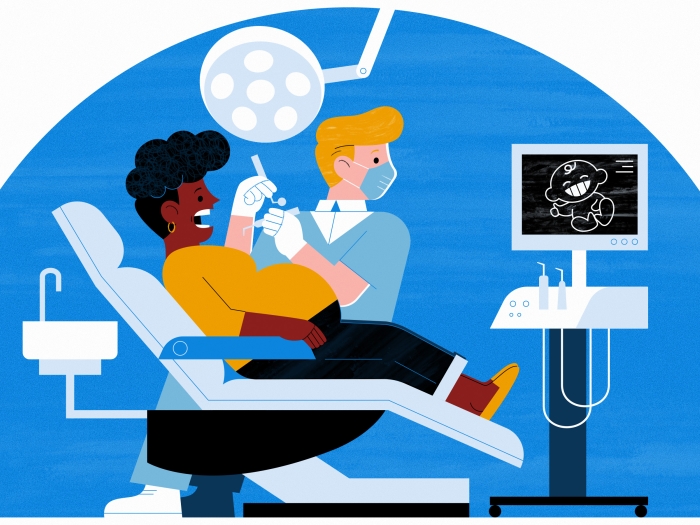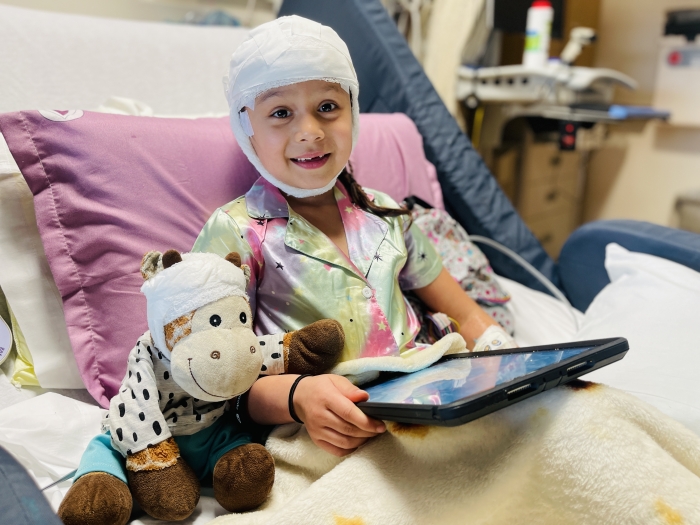A U-M-designed Android app may help primary care providers in developing countries assess genetic risks of expectant mothers.
7:00 AM
Author |

We use apps to avoid traffic congestion, track storms and count calories. But can they help us prevent birth defects? One Michigan doctor thinks so.
SEE ALSO: Artificial Placenta Holds Promise for Extremely Premature Infants
Shane Quinonez, M.D., a pediatrician and board-certified medical geneticist at University of Michigan C.S. Mott Children's Hospital, built an app designed to reduce the incidence of birth defects and genetic disease in developing countries. Called MiGene Family History Application, it helps primary care physicians guide patients through a personal and family history consultation, focusing on birth defects and genetic disease history.
"If we can find a way to help community physicians more effectively support pregnant mothers and families affected with birth defects and genetic diseases, the potential for saving lives is huge," Quinonez says.
The potential to save lives is significant.Shane Quinonez, M.D.
Birth defects in developing countries
Multiple genetic and environmental factors can cause birth defects. A major environmental factor is exposure to teratogens (or causal factors) between weeks three and eight of pregnancy when the major organ systems form. Common teratogens include alcohol, medications, maternal infections or diseases, malnutrition and uncontrolled diabetes.
Helping mothers and families in developing countries learn about these and other factors is key to improving defect incidence rates.
"We believe the most direct route for preventing birth defects in developing countries is through the primary care providers," says Quinonez.
"If we can equip primary care providers with tools to easily perform a basic genetic risk assessment of women who are pregnant or trying to become pregnant and families affected with birth defects and genetic disease, we can help them identify individuals who may be at higher risk of developing a congenital anomaly or being affected with a genetic disease."
And educating health professionals in the goals and methods of preventing birth defects can be done at a lower cost than a public-oriented information campaign and with more direct impact.
This is where the MiGene Family History Application comes in.
Based on the entered information, the app then provides tailored genetic counseling to the mother and family.
Testing the tech in Ethiopia
Quinonez and his colleagues traveled to Ethiopia this summer to launch the app, which is available on the Android platform, the most commonly used operating system in the country.
SEE ALSO: Developmental Differences in Late Preemies May Not Emerge Until After Age 2
"We have a well-established relationship with St. Paul's Hospital Millennium Medical College in Ethiopia," says Quinonez, adding: "The potential to save lives by starting there is significant."
The country's incidence of birth defects — 54.4 per 1,000 live births — is among the reasons it was a good place to launch the program. In a country with a higher incidence rate, such as Sudan, an emphasis on improved perinatal care might be more beneficial first, Quinonez says. (For perspective, the incidence rate of birth defects in the U.S. is 47.8.)
"For many high-risk mothers and families, simple steps like limiting exposure to environments that may increase risk of infection can go a long way toward reducing the risk of abnormal fetal development for her child or future children," says Quinonez.
The MiGene app was designed so that it could be used broadly to support health needs assessments by any hospital or ministry of health through its ability to store the entered epidemiologic data for future analysis. (Patients fill out consent forms for this, which are available in both English and Amharic.)
In addition to assisting practitioners on the front line of prenatal care and pediatric care, the app has the potential to help countries better support broader public health efforts.
"Good epidemiological data on the prevalence and types of birth defects and genetic disorders is paramount to making long-term strides against the incidence of congenital anomalies in these countries," says Quinonez.
"Using the data collected by the app, we hope to be able to carry out health needs assessments at a higher level. The potential is pretty exciting."

Explore a variety of healthcare news & stories by visiting the Health Lab home page for more articles.

Department of Communication at Michigan Medicine
Want top health & research news weekly? Sign up for Health Lab’s newsletters today!





